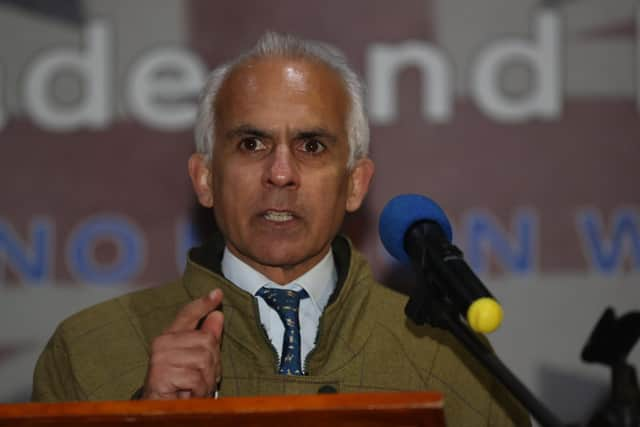Ben Habib: Ultimately, the effects of Windsor Framework on Northern Ireland will be same as the effects of the NI Protocol


But, if there were grounds to oppose the protocol, these still firmly exist to oppose the Windsor Framework.
First and foremost, the Windsor Framework would not replace the protocol, it is of the protocol. It is a construct of the Joint Committee of the EU and UK established by the Withdrawal Agreement to give effect to the protocol. By the EU’s own declaration, it confirms the Windsor Framework to be wholly consistent with Article 164 of the Withdrawal Agreement which requires any amendments made would not “amend the essential elements of this Agreement”.
Advertisement
Hide AdAdvertisement
Hide AdUnder the Windsor Framework, Northern Ireland would remain part of the EU’s single market for goods, subject to foreign EU laws, made by a foreign EU legislature and wholly adjudicated by a foreign EU court. The Windsor Framework is crystal clear in all these respects.


Yes, it clarifies how EU state aid law would be applied and it makes an exception for VAT rates applied to immovable objects, amongst other things, BUT it would not release Northern Ireland from compliance with its regulatory regime.
The green and red lanes to be established by the Windsor Framework would not be a new settled trading arrangement between GB and NI. They effectively would be derogations from the existing requirements for goods moving across the Irish Sea. The EU would retain the right, unilaterally, to withdraw the trusted trader system underpinning green lanes. Even though the establishment of these lanes would significantly reduce the friction in trade they would not be frictionless, require their own set of regulatory approvals and the disclosure of sensitive trading data by British businesses to the EU; all the while with British businesses unable to rely on the arrangements being permanent.
And, crucially, while the EU has indicated it would withdraw its threat of legal action against the UK for not introducing checks on goods moving from NI to GB, it has NOT given up its right to make such a demand. Do not, for a moment, assume checks will not one day be required for goods leaving the EU’s customs union and entering that of the United Kingdom’s. The vast majority of commentary on the Protocol and Windsor Framework has wrongly ignored this possibility.
Advertisement
Hide AdAdvertisement
Hide AdBy no assessment could anyone claim the Windsor Framework restores the Acts of Union and Northern Ireland to its rightful place in the United Kingdom.
The Stormont brake, offered apparently to address the democratic deficit and give Stormont a veto on new EU laws, does not work. The brake could only be exercised in exceptional circumstances where a proposed new EU law would demonstrably have a material adverse impact and then only if HMG agreed to apply the brake. And, even after all those hurdles are passed and a law rejected, the EU would be entitled unilaterally to take remedial measures against Northern Ireland for such a rejection. In short, Northern Ireland would be sanctioned for turning away a new law.
Even if the Stormont brake worked, it would only be applicable to new EU laws. The body of EU law to which Northern Ireland is already subject would be set in stone by the Windsor Framework. In this important respect, far from changing the protocol, the Windsor Framework would reassert it.
Ultimately the effects of the Windsor Framework on Northern Ireland would be the same as the effects of the protocol. The diversion of trade away from GB to the Republic would continue. And, as new laws are made both by the EU and GB, Northern Ireland would increasingly find itself legally diverging from GB. As with the protocol, the Windsor Framework would yank Northern Ireland away from Great Britain.
Advertisement
Hide AdAdvertisement
Hide AdThis might be baffling to those who have accepted HMG’s line that the Windsor Framework is a new better settlement for Northern Ireland. But it makes perfect sense if, as is the case, you understand the Windsor Framework to be but a version of the Protocol.
l Ben Habib is a former Brexit Party MEP